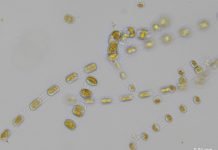
Endurance training, such as 800 meters running, 400 meters swimming, and road cycling, is quite beneficial to health and wellbeing.
It can increase energy for daily functioning, control body weight, improve mood, increase muscle strength, and reduce risks of diseases, including heart diseases, type II diabetes and obesity.
Now researchers find that endurance training can change the expressions of genes that related to energy production in body cells. The finding is published in PLOS Genetics.
Researchers from Karolinska Institute and Royal Institute of Technology in Sweden worked together to conduct the study.
They trained 23 individuals on one leg for 3 months. After 9 months, 12 of these participants trained both legs in a second training period. Skeletal muscle tissues were obtained from both legs before and after both training periods.
RNA sequencing analysis was conducted on 119 skeletal muscle tissues. The results showed that endurance training changed the expressions of 3,404 genes that were mainly related to energy production. In addition, training altered expression of 34 novel transcripts, all with protein-coding functions.
Researchers also found that training changes the activity of functionally unknown parts of the genome, and it was possible that new protein variants that could enhance health were generated due to exercise.
Researchers suggest that the study provides new information about how training can change expression of genes, and how the body adapts to regular endurance training. The results also contribute to future training intervention for individuals with different exercise demands.
Citation: Lindholm ME et al. (2016). The Impact of Endurance Training on Human Skeletal Muscle Memory, Global Isoform Expression and Novel Transcripts. PLOS Genetics, 12: e1006294. doi: 10.1371/journal.pgen.1006294.
Figure legend: This Knowridge.com image is for illustrative purposes only.




